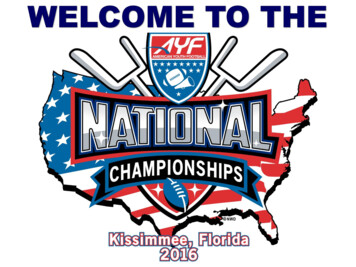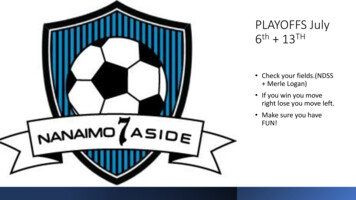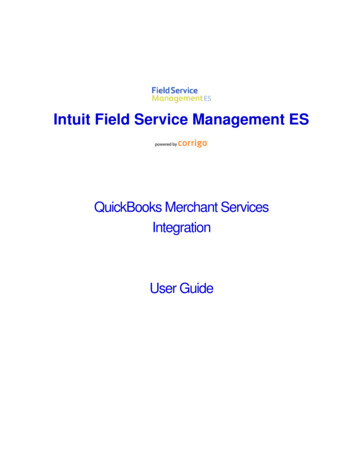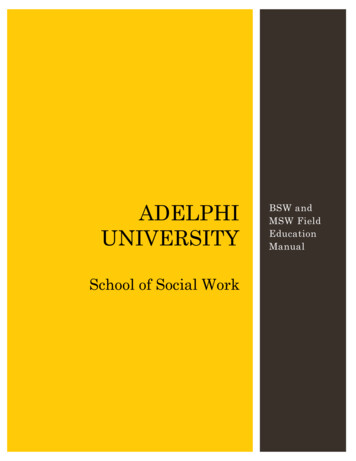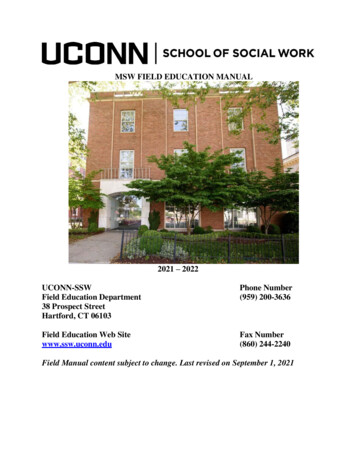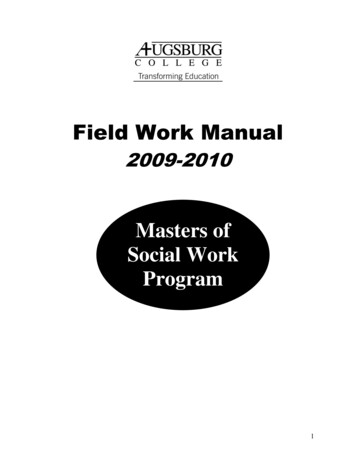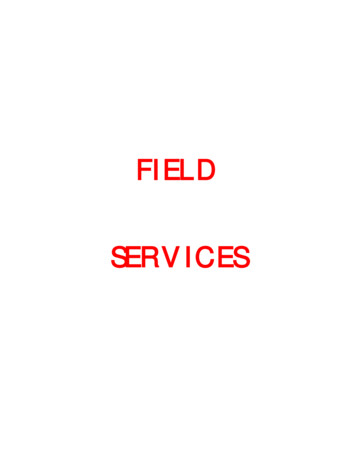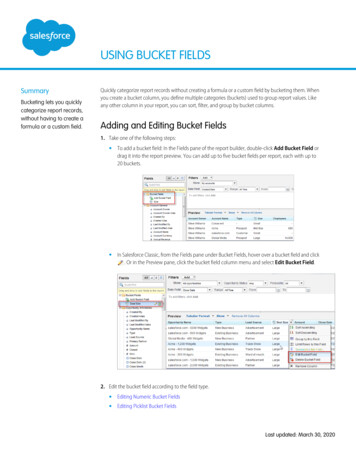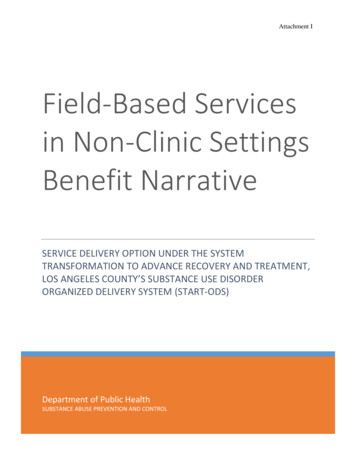
Transcription
AttachmentIIAttachmentField-Based Servicesin Non-Clinic SettingsBenefit NarrativeSERVICE DELIVERY OPTION UNDER THE SYSTEMTRANSFORMATION TO ADVANCE RECOVERY AND TREATMENT,LOS ANGELES COUNTY’S SUBSTANCE USE DISORDERORGANIZED DELIVERY SYSTEM (START-ODS)Department of Public HealthSUBSTANCE ABUSE PREVENTION AND CONTROL0 Page
Attachment ITable of ContentsI.Introduction . 2II.Purpose of Field-Based Services . 2III.Target Populations . 3IV.Where Services Can Be Provided . 3(a) Youth . 4(b) Adult . 4V.Components of Field-Based Services . 5(a) FBS Outpatient/Intensive Outpatient Service Components . 5(b) Service Expectations . 5VI.Documentation . 6VII.Staffing Levels and Provider Experience . 7VIII. Conclusion . 71 Page
Attachment II.IntroductionThe Los Angeles County Department of Public Health, Substance Abuse Prevention andControl (SAPC) now offers an expanded benefit package of Substance Use Disorder (SUD)services with the launch of the System Transformation to Advance Recovery and Treatment,Los Angeles County’s Substance Use Disorder Organized Delivery System (START-ODS).The benefit package contains provisions to allow for Field-Based Services (FBS) as a methodof service delivery for Outpatient Services (American Society of Addiction Medicine(ASAM) Level 1), Intensive Outpatient Services (ASAM Level 2.1), and Recovery SupportServices (RSS) for patients with established medical necessity.Additionally, at a minimum, registered SUD counselors may conduct the ASAM Continuumassessments at SAPC-approved sites as an FBS option to promote client engagement intreatment services. Under START-ODS, agencies must verify medical necessity by aLicensed Practitioner of the Healing Arts (LPHA) within seven (7) calendar days of theinitial FBS assessment for young adults (18-20) and adults (21 and over) or within 14calendar days of the initial FBS assessment for youth (ages 12-17) in order to bill forassessment services. Time spent conducting assessments for individuals that do not meetmedical necessity is not reimbursable under START-ODS.Services under the START-ODS must be patient-centered and may vary in intensity,duration, and method of service delivery based on medical necessity and the patient’s needs.This includes the delivery of outpatient or intensive outpatient treatment services at non-SUDclinic sites. The network provider delivering the FBS must be employed with a contractedDrug Medi-Cal (DMC)-certified agency operated site.II.Purpose of Field-Based ServicesThe evolution of the SUD treatment field under the County’s START-ODS allows for theflexible delivery of outpatient (OP), intensive outpatient treatment (IOP), and recoverysupport services (RSS) based on the patient’s needs and established treatment goals. Flexibletreatment approaches such as FBS and the use of a patient-centered philosophy can increasepatient motivation in treatment and lead to positive treatment outcomes.1FBS as a method of service delivery provides an opportunity for SUD network providers to(1) better integrate necessary physical and behavioral health, as well as social services, and(2) address patient barriers to accessing traditional treatment settings such as physicallimitations, employment conflicts, transportation limitations, or restrictive housingrequirements (e.g., registered sex offenders). The utilization of FBS should be based on ademonstrated and documented patient need for services outside of a DMC-certified site.1U.S. Department of Health and Human Services, Substance Abuse and Mental Health Services Administration,Center for Substance Abuse Treatment. (2002). Enhancing Motivation for Change in Substance Abuse Treatment.TIP 35. Rockville, MD.2 Page
Attachment IIII.Target PopulationsThe delivery of FBS is intended for populations that have been historically difficult to reachwhich include, but are not limited to the following:ooooooooooooIV.ArsonistsFoster care system involvedGang-involvedHomeless and chronically homelessIndividuals with co-occurring or co-morbidity diagnosisJuvenile justice-involvedMedically fragile/limited mobilityOlder adultsPregnant and post-partum femalesRegistered sex offendersResidents of rural areasSchool-based youth, including alternative school placementsWhere Services Can Be ProvidedPrior to commencing FBS, contractors must submit a completed work plan summary andnarrative (See SAPC Bulletin 19-03) to SAPC for review and approval. The purpose of thework plan is to establish the following:o Identify the proposed non-clinic setting(s);o Identify target populations to be served;o Demonstrate that FBS will comply with required patient confidentiality requirements(42 CFR part 2 and the Health Insurance Portability and Accountability Act (HIPAA))when they are delivered in the proposed settings; ando Describe the frequency and duration of service provision in field-based locations.SAPC will require Memoranda of Understanding (MOU) between the provider and theagencies/organizations that will host the provider of FBS including school-based sites. TheMOU shall include contact information for the proposed site location (e.g., location name,location manager/contact, address, daytime phone number, etc.); proposed number ofindividuals to be served per day, week and month; agreed days and times that services will beprovided; details regarding the roles and responsibilities of key staff; a term period; andproposed services and provisions for network providers to effectively conduct services,including adherence to confidentiality rules and regulations. SAPC reserves the right to denyapproval of work plans at its sole discretion at any time. For instance, SAPC may limit thenumber of treatment providers conducting FBS at permanent supportive housing sites withinwalking distance of each other. Proposed FBS site locations may be denied if there is not avalid business license and fire department permit.3 Page
Attachment IThe approved work plan will allow contracted agencies to have a predetermined set of potentialnon-clinic settings where service delivery may be appropriate when a treatment plan indicatesthat a client may benefit from FBS. SAPC will disallow any FBS services that contractorsprovide at sites not approved through the FBS process and may have their approved FBS workplan revoked.The following outlines SAPC-recommended non-clinic settings:(a) Youtho Youth Homeless Shelterso Group Homeso Community Facility Centerso Community Centerso Recreation Centerso Department of Children and Family Services Officeso Probation Office Sites/Regional Hubso Los Angeles County Office of Education Alternative sites(b) Adulto Adult Day Centerso Board and Care Settingso Federally Qualified Health Centerso Drop-in Centerso Department of Mental Health (DMH) clinic sites (including DMH legal entities)o Department of Health Services (DHS) directly-operated facilitieso Department of Probation Area Officeso Department of Children and Family Services Officeso Department of Public Social Services Officeso Permanent or Interim Housing SitesLimitations/Exclusions: In-custody services provided for youth and adults are not permissible asan FBS delivery site or reimbursable through the Drug Medi-Cal (DMC) program.DMC Site Certification and Other SAPC Requirements: FBS cannot be utilized in lieu ofobtaining a California Department of Health Care Services (DHCS) DMC Site Certification forproviders’ directly operated sites (e.g., rented, leased, and owned sites) where delivery of SUDor mental health treatment services are the primary business and where services are delivered byindividuals employed by the agency managing the service site.DHCS DMC Site Certification is not required for facilities whose primary business is theprovision of services other than SUD and mental health and where individuals not employed bythe agency are managing the services delivered on-site.4 Page
Attachment IV.Components of Field-Based Services1) AssessmentsAgencies that opt to utilize FBS to conduct ASAM Continuum assessments will notbe reimbursed under START-ODS if patients do not meet medical necessity or arenot eligible for Medi-Cal, My Health LA, or select County-funded programs such asAssembly Bill 109, Juvenile Justice Crime Prevention Act, Promoting Safe andStable Families Time Limited Family Reunification, or Title IV-E.2) Direct Treatment ServicesUnder FBS, OP services, IOP services, and RSS are allowable services, providedindividuals meet medical necessity. Furthermore, based upon the ASAM Criteria, thefollowing service components are allowable:(a) FBS Service Components2:o Individual Counseling (OP, IOP, and RSS)o Group Counseling3 (OP, IOP, and RSS)o Case Management (OP, IOP, and RSS)o Treatment Planning (OP and IOP)o Discharge Planning (OP and IOP)o Crisis Intervention (OP and IOP)o Patient Education (OP and IOP)o Family Therapy (OP and IOP)o Collateral Services (OP and IOP)o Recovery Monitoring (RSS)o Substance Abuse Assistance: Relapse Prevention (RSS)(b) Service ExpectationsThe addition of FBS allows contractors the opportunity to promote patient engagementand retention in SUD treatment services. Incorporating FBS into treatment planningcan motivate clients through the following:o Increasing patient retention in treatment.o Re-engaging patients struggling with compliance and/or adherence totreatment.o Overcoming patient resistance to traditional treatment settings.o Keeping patients engaged in services when placed on waitlists for higherlevels of care or during transitions to lower levels of care. 423Refer to narrative in Provider Manual for treatment service definitions and service components.Groups should have at least two (2) and can be no more than 12 individuals per group.5 Page
Attachment IContractors are expected to ensure that services reflect the individual’s goals and are tailored tomeet the patient’s needs, including the availability of services provided via FBS. This includesthe following service expectations:o Culturally Competent Services: Contractors shall provide culturally competent services.Contractors must ensure that their policies, procedures, and practices are consistent withthe principles outlined in the National Standards for Culturally and LinguisticallyAppropriate Services in Health and Health Care (CLAS) and are embedded in theorganizational structure.o Age and Developmentally Appropriate Services: Contractors shall deliverservices that align with the patient’s age and developmental level to ensureengagement in the treatment process.o Medications for Addiction Treatment (MAT): Contractors shall maintainprocedures for linkage/integration to MAT services. Patients receiving MATmust not be discriminated against and must have equal access to services. Theprescribing of MAT should follow established prescribing standards from theASAM and the Substance Abuse and Mental Health Services Administration(SAMHSA). Contractor staff will regularly communicate with prescribers ofMAT to ensure coordination of care, assuming the patient has signed a 42 CFRPart 2 compliant release of information for this purpose.o Evidenced-Based Practices (EBP): Contractors must implement, at minimum,the following two EBPs: Motivational Interviewing (MI) and CognitiveBehavioral Therapy (CBT). Providers are encouraged to implement additionalEBPs, including relapse prevention, trauma-informed treatment, andpsychoeducation.o Case Management: Contractors shall deliver a variety of case management andcare coordination services, including transitioning patients from one level ofcare to another and navigating the mental health, physical health, and socialservice delivery systems, including housing referrals, as appropriate.o Confidentiality Regulations: Contractors shall adhere to all applicableconfidentiality laws, including but not limited to, CFR Title 42 §2.35(a); HealthInsurance Portability and Accountability Act (HIPAA) Privacy Regulations; 45CFR Section 164.508(b)(2) and 164.501; and the California Civil Code Section56.11, when providing FBS.VI.DocumentationDocumentation for agencies proposing to provide direct SUD treatment via FBS: If during thetreatment planning process it is determined that FBS are appropriate, then the treatment plan4U.S. Department of Health and Human Services, Substance Abuse and Mental Health Services Administration,Center for Substance Abuse Treatment. (2002). Enhancing Motivation for Change in Substance Abuse Treatment.TIP 35. Rockville, MD.6 Page
Attachment Imust provide the anticipated number of FBS sessions to be provided and the approved sitelocation(s) from the SAPC-approved work plan. Additionally, as with required treatment planreviews and updates, the SUD counselor and LPHA must document the continued need forFBS, if applicable. All client files must be housed at the DMC-certified facility and in noinstance shall client files be stored at the FBS site locations.To ensure that activities are appropriately administered, a Monthly Activity Report (See SAPCBulletin 19-03) must be submitted every month per provider for as long as FBS activities areprovided.VII.Staffing Levels and Provider ExperienceStaffing Level/Experience: FBS must be delivered by certified SUD counselors or LPHAs.Professional staff must be licensed, certified, or recognized under California State scope ofpractice statutes. Professional staff shall provide services within their individual scope ofpractice as required. Certified SUD counselors must adhere to all requirements in theCalifornia Code of Regulations, Title 9, Chapter 8 and must be certified by one of the NationalCommission for Certifying Agencies (NCCA) accredited organizations recognized by theCalifornia Department of Health Care Services (DHCS): Addiction Counselor CertificationBoard of California (affiliated with California Association for Alcohol/Drug Educators(CAADE); California Association of DUI Treatment Programs (CADTP) and CaliforniaConsortium of Addiction Programs and Professionals (CCAPP). With the exception ofMedications for Addiction Treatment (MAT) services, all OP and IOP services may beprovided by a certified SUD counselor or LPHA. An LPHA possesses a valid Californiaclinical license in one of the following professional categories:ooooooooooVIII.Physician (MD or DO)Nurse Practitioner (NP)Physician Assistant (PA)Registered Nurse (RN)Registered Pharmacist (RP)Licensed Clinical Psychologist (LCP)Licensed Clinical Social Worker (LCSW)Licensed Professional Clinical Counselor (LPCC)Licensed Marriage and Family Therapist (LMFT)License-Eligible Practitioners working under the supervision of licensed cliniciansConclusionSUD treatment should be delivered across a continuum of care that reflects illness severity andthe intensity of services required. One of the key goals of DPH-SAPC is to ensure that patients7 Page
Attachment Ireceiving SUD services in Los Angeles County receive the right service, at the right time, for theright duration, and in the right setting. The addition of FBS as a service delivery method willprovide opportunities for engagement, retention, and delivery of services for hard-to-reachpopulations.Throughout START-ODS implementation, SAPC will continue to explore opportunities toexpand the availability of FBS to additional service sites, populations, and service categoriesbased on community need and within the limitations of the DMC Wavier.8 Page
treatment planning process it is determined that FBS are appropriate, then the treatment plan 4 U.S. Department of Health and Human Services, Substance Abuse and Mental Health Services Administration, Center for Substance Abuse Treatment. (2002). Enhancing Motivation for Change in Substance Abuse Treatment. TIP 35. Rockville, MD.
